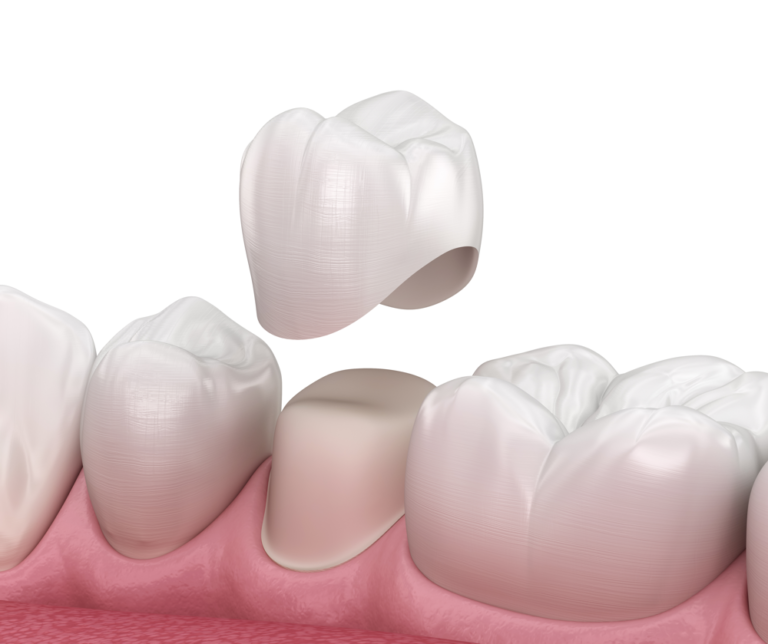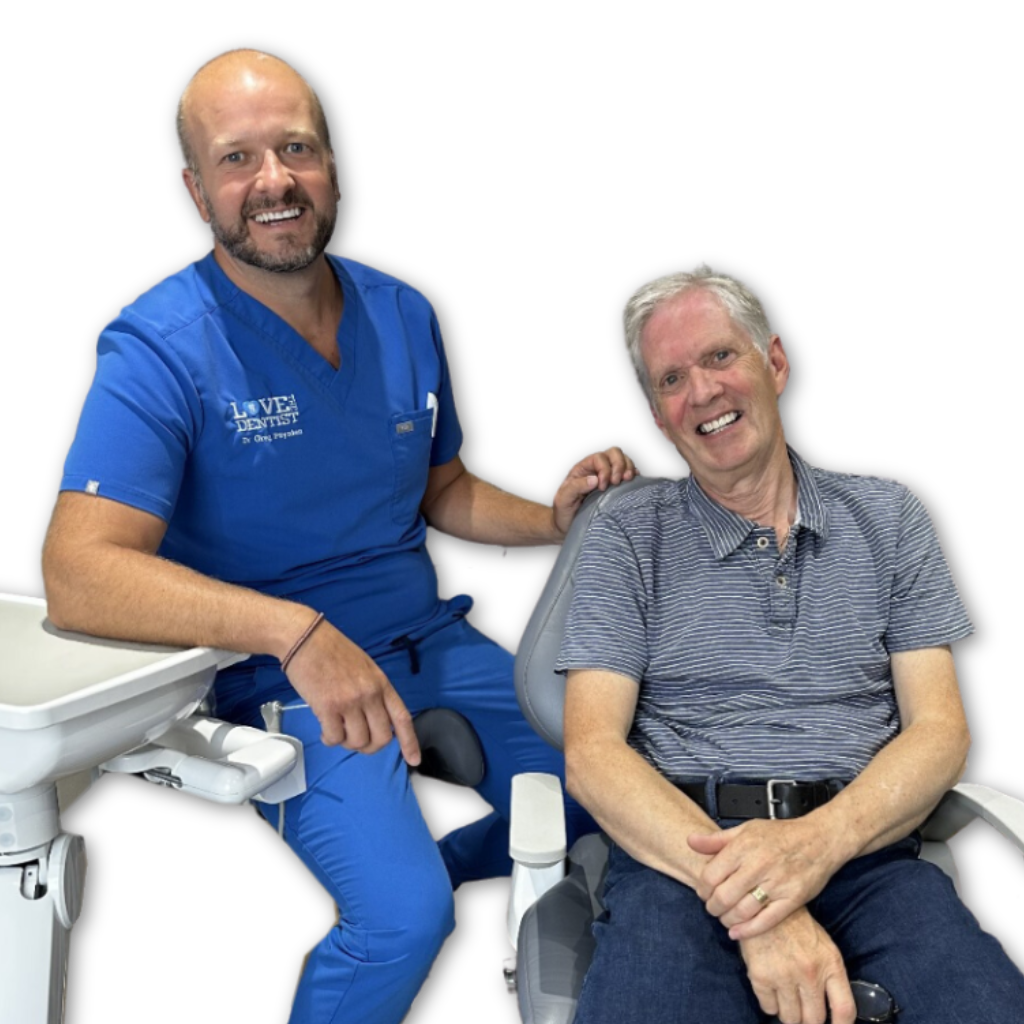dental crowns
Crowns are used to restore teeth that are too broken down for white fillings , or to change the aesthetics of a tooth where a veneer may not be enough. If there is not enough tooth enamel to build on, or place an inlay/onlay on, a crown is the next best thing to ensure the integrity of the tooth remains intact. A crown is essentially a cover for the whole upper part of the tooth, sitting on the gum line, the roots of the tooth are still present in the jaw. There are numerous materials that can be used to make a crown, we mainly work with Emax and Zirconia Crowns.

Emax Crown
Emax crowns are made out of a lithium disilicate glass ceramic and have exceptional strength, translucency and durability properties. They do very well at imitating natural enamel, being strong enough to be made into very thin layers and still easily withstand biting and chewing forces. The translucent dynamic helps them to look just like a natural tooth, blending in with the adjacent teeth.
Zirconia Crown
Zirconia is a type of crystal that is extremely durable and virtually indestructible, making it one of the hardest and strongest types of ceramic crown available. Although they are not as translucent as Emax due to their opaqueness, they can be perfectly colour matched to the adjacent natural teeth. These crowns are long wearing and a sensible choice for those with heavy bites.
What happens during a crown appointment?
We want you to feel as comfortable and relaxed as possible during every treatment, so local anaesthetic will be available if necessary to ensure there is no pain / sensitivity. There is also an option for sedation for those with dental anxiety.
The dentist may want to take an impression of the tooth prior to preparation so that they can make a temporary crown to be worn in the interim period whilst your new crown is being made at the lab.
The tooth is then prepared to size, allowing room for the new crown to sit comfortably and in uniform with adjacent teeth. A digital scan is then taken of the whole mouth and bite and sent to the lab for the crown to be made.
A temporary crown is placed on the tooth to keep it safe from sensitivity and potential damage.
A second appointment is made for around 10 days later, where your new crown will be fitted. Small adjustments can be made to ensure the perfect fit and bite.
Dental crown aftercare
Anything new in the mouth can take a while to get used to or may feel alien for a while, here is some advice and tips to follow for after you have had a crown preparation/new crown fitted:
- If you have had local anaesthetic, it may take up to 4-6 hours for the effects to wear off. During this time, please ensure that you refrain from chewing your lip, inner cheek, tongue or soft tissues and drinking hot drinks to avoid unwittingly causing trauma to the area.
- Your mouth has been worked on, so there may naturally be a small amount of tenderness, bruising and sensitivity to the area for a couple of days. If there are still worsening symptoms of pain after 7 days, contact the practice for advice.
- Sensitivity to hot and cold are relatively normal for a short period of time after a white filling, and you should find that this settles after a few weeks. However, if you experience a prolonged period of sensitivity to temperature, or it worsens, please contact the practice for advice.
- Your temporary crown is designed to be just that, temporary! This is to ensure the ease of removal for when it is time to place your permanent crown. Because of this, sometimes the temporary crown can come off prior to your second appointment. If this happens, call the practice for advice - we can normally see you within the day to place back on and keep your tooth protected.
- Once your crown is fitted, the dentist will carry out some tests to ensure your bite is unaffected and adjust accordingly. Sometimes, it can take a few days for it to become apparent, you may experience tenderness, like bruising, when chewing. If you experience this, the dentist can see you to adjust the crown a little more.
- In the unlikely event your permanent crown de-bonds and comes off, we can usually see you within 24 hours to assess what has happened and re cement your crown back on.


